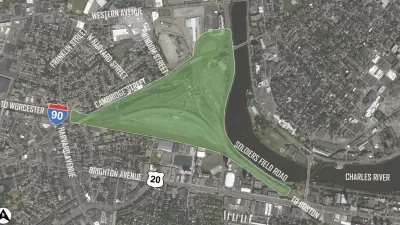Larger universities, like Boston University, have begun swallowing up smaller schools that offer new students and a goldmine of real estate in dense urban areas.

As smaller colleges across the country struggle to attract new students willing to pay the high cost of tuition, some have sought to merge with other institutions to keep their programs afloat. Deirdre Fernandes of The Boston Globe reports that these smaller colleges have attracted attention of larger institutions looking to get their hands on valuable real estate. Fernandes notes the pending merger of Wheelock College with Boston University. Wheelock sits on over five acres on property in an area seeing rapid gentrification.
Real-estate prices in Boston have skyrocketed, and developable land in the city is limited, making the property owned by schools particularly attractive — either to another school that is hemmed in or to a commercial developer, real estate experts said.
Schools pondering mergers have to consider a host of factors to determine whether a partnership will work, but real estate is likely to be one of the issues, said David Begelfer, chief executive of NAIOP Massachusetts, a real estate trade group.
Fernandes writes that Boston University's president Robert Brown has not said how the Wheelock campus will be used, however many of the existing programs on both campuses will be consolidated.
FULL STORY: Why are so many colleges merging? Money and real estate

Planetizen Federal Action Tracker
A weekly monitor of how Trump’s orders and actions are impacting planners and planning in America.

Maui's Vacation Rental Debate Turns Ugly
Verbal attacks, misinformation campaigns and fistfights plague a high-stakes debate to convert thousands of vacation rentals into long-term housing.

San Francisco Suspends Traffic Calming Amidst Record Deaths
Citing “a challenging fiscal landscape,” the city will cease the program on the heels of 42 traffic deaths, including 24 pedestrians.

Amtrak Rolls Out New Orleans to Alabama “Mardi Gras” Train
The new service will operate morning and evening departures between Mobile and New Orleans.

The Subversive Car-Free Guide to Trump's Great American Road Trip
Car-free ways to access Chicagoland’s best tourist attractions.

San Antonio and Austin are Fusing Into one Massive Megaregion
The region spanning the two central Texas cities is growing fast, posing challenges for local infrastructure and water supplies.
Urban Design for Planners 1: Software Tools
This six-course series explores essential urban design concepts using open source software and equips planners with the tools they need to participate fully in the urban design process.
Planning for Universal Design
Learn the tools for implementing Universal Design in planning regulations.
Heyer Gruel & Associates PA
JM Goldson LLC
Custer County Colorado
City of Camden Redevelopment Agency
City of Astoria
Transportation Research & Education Center (TREC) at Portland State University
Jefferson Parish Government
Camden Redevelopment Agency
City of Claremont





























